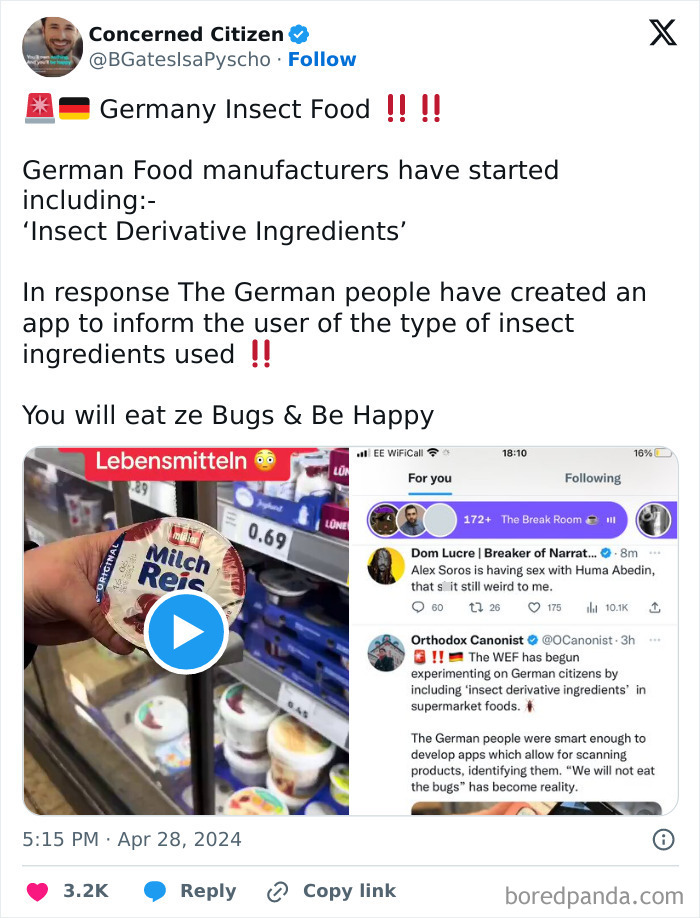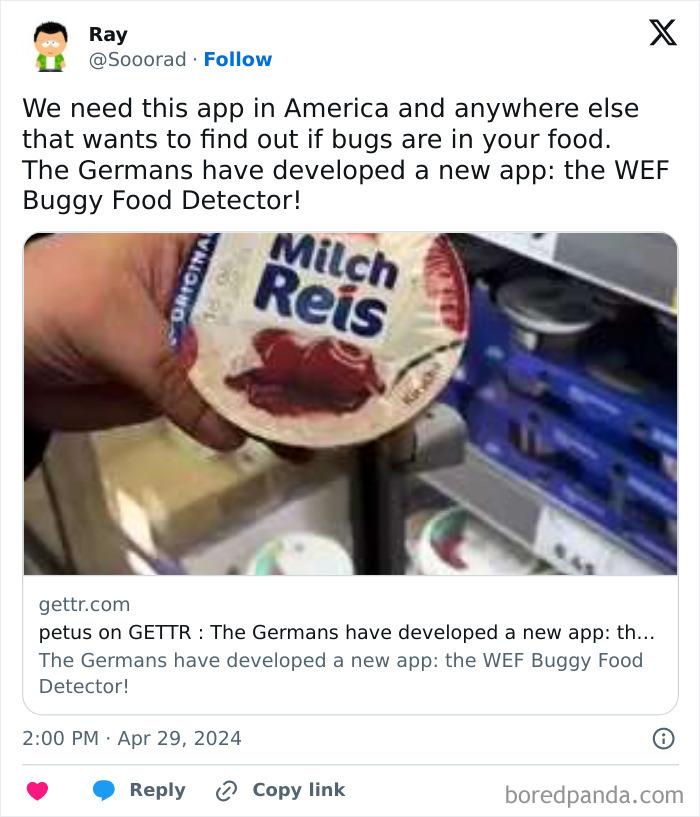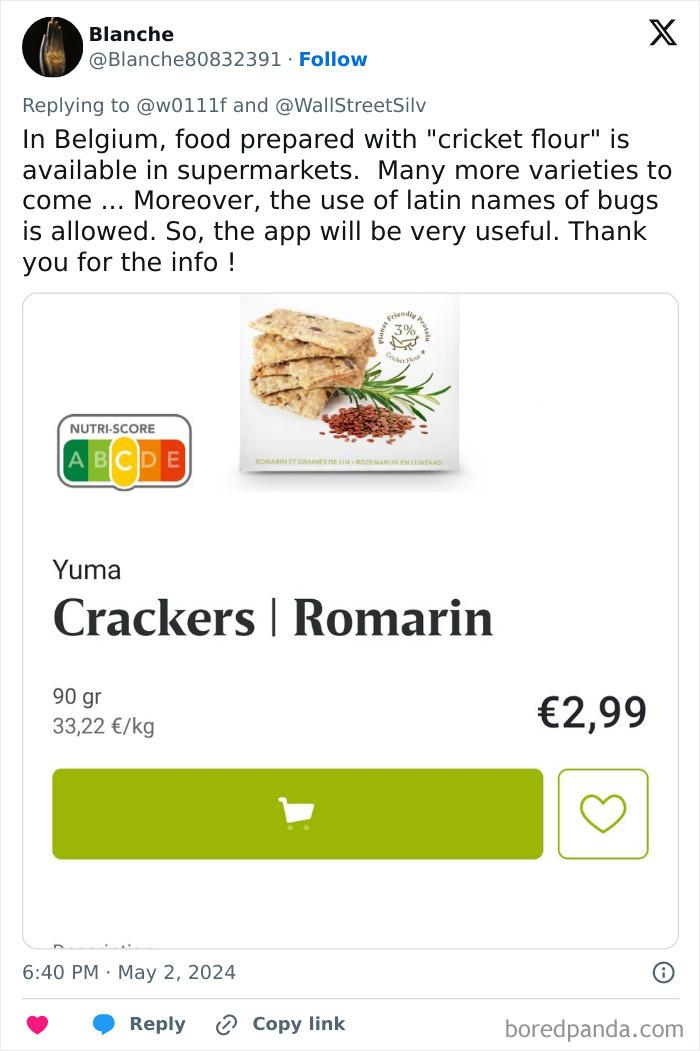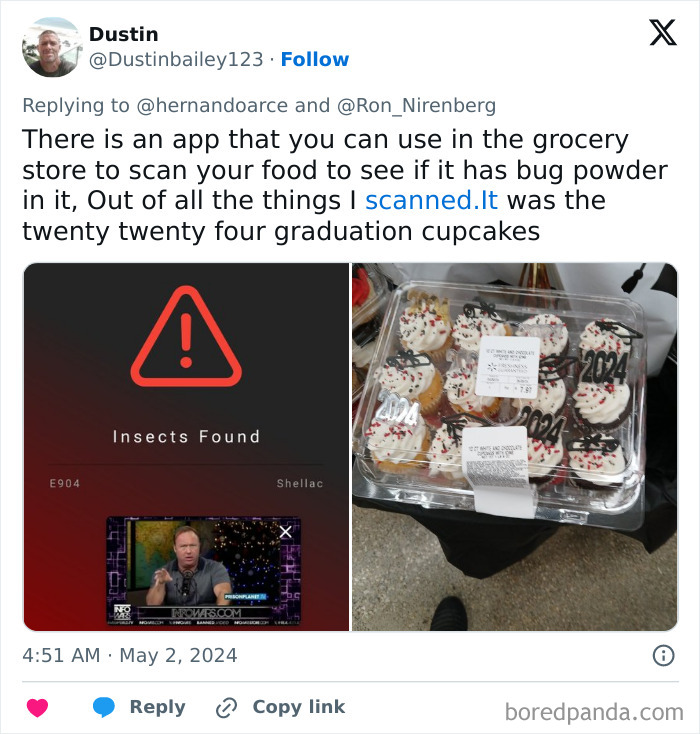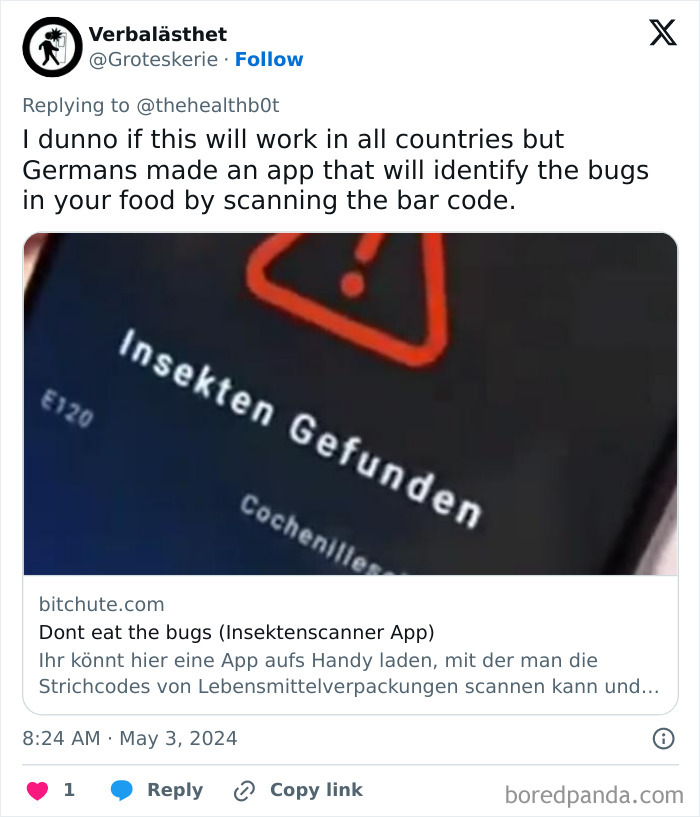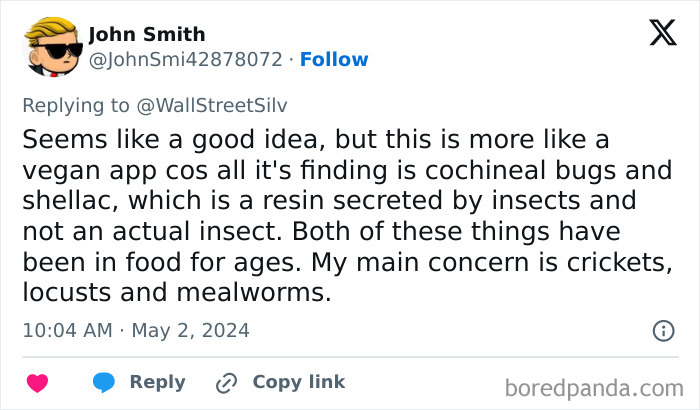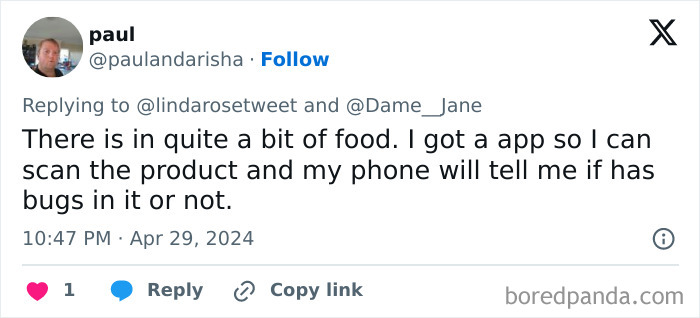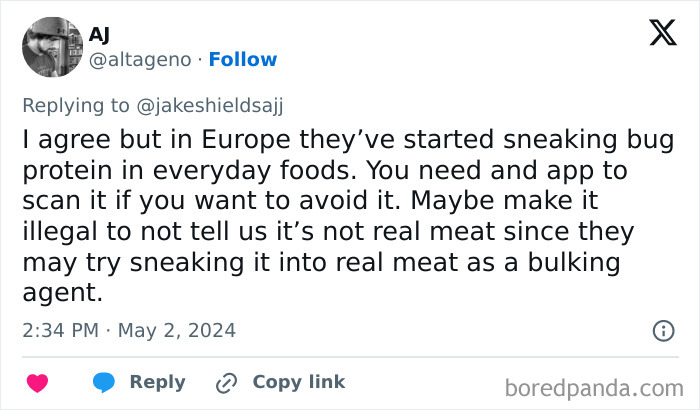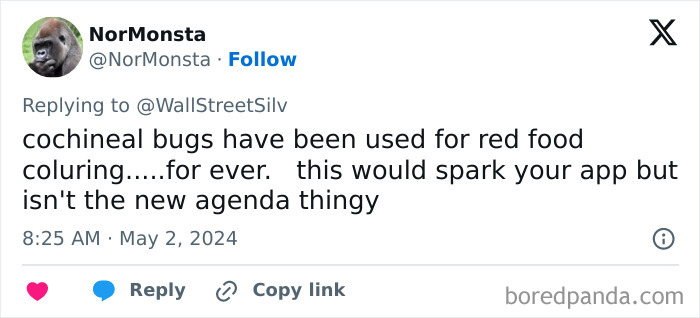A German app called Insekten Scanner scans the barcode of a food product to tell you whether it includes insect parts in the ingredients. The app, which was first developed in late 2023 and now has over 100,000 downloads, recently went viral on X after several viral posts caused outrage among Americans.
The account Wall Street Silver (@WallStreetSilv) posted a video on May 2 of a user in a German supermarket scanning items with the app, which they captioned “‘We will NOT eat the bugs’ has become reality.”
In the video, the user repeatedly receives the message “Insekten Gefunden” or “Insects Found.” Items include pudding cups, premade meals, and even chocolate candies. “Everything has bugs,” one user replied.
A German app went viral on X because it tells you if food products contain “insect derivative ingredients”
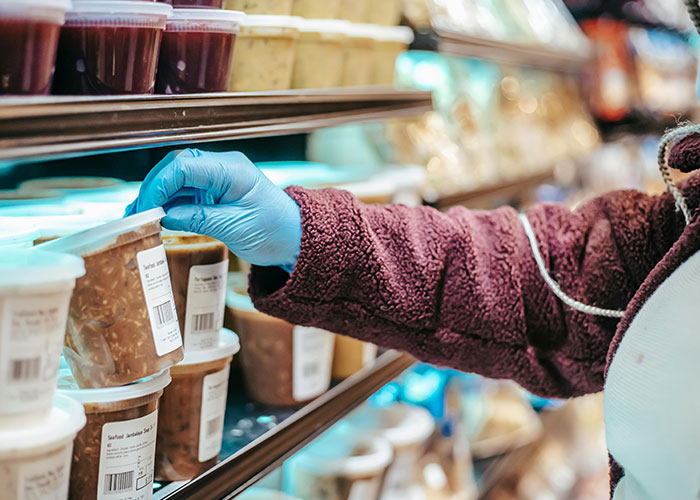
Part of the reason for the warning’s ubiquity is a food dye labeled E120, otherwise known as “carmine.” A pigment derived from carminic acid, E120, is used to give foods a bright red color.
Although carmine can be produced synthetically, it has traditionally been made from the boiled bodies of cochineal insects, which produce carminic acid to deter predators. It has been used to dye food and textiles since ancient times.
Manufacturers still use the insects for coloring in part because it’s cheaper but also because it allows them to label their products as “all natural.” In some cases, regulations on synthetic dyes may be more restrictive as well.
A video showed numerous food products being flagged due to the presence of carmine dye, which is made from cochineal insects
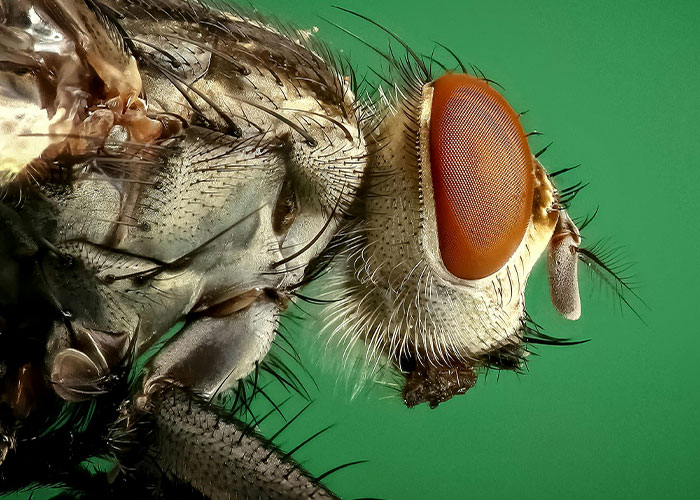
This was elaborated under most of the viral posts by X’s “context.” However, in many cases, this only fueled the fires of controversy. The post swiftly racked up 1.4 million views, 12,000 likes, and nearly 1,000 comments, with most debating the issue.
Many people used the app and its results as evidence of the “you will eat ze bugs” conspiracy theory, which the original poster referenced in their caption. Numerous comments alluded to “the WEF’s Agenda 2030” or Bill Gates.
Some simply didn’t like the idea of consuming insects. One response read: “This is my worst nightmare. Eating bugs.” Or more to the point: “Well, now, that’s disgusting.”
Many users felt the video was evidence of a conspiracy to get people to unwittingly consume insects, while others were simply disgusted
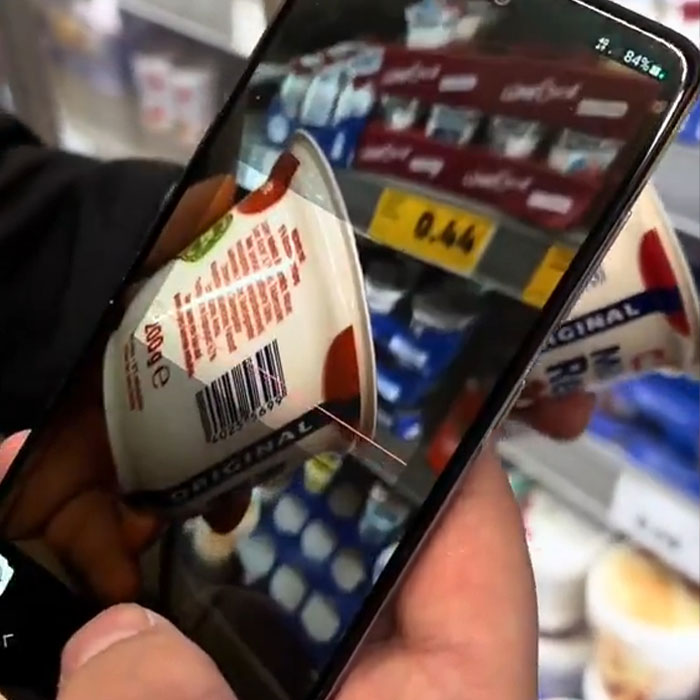
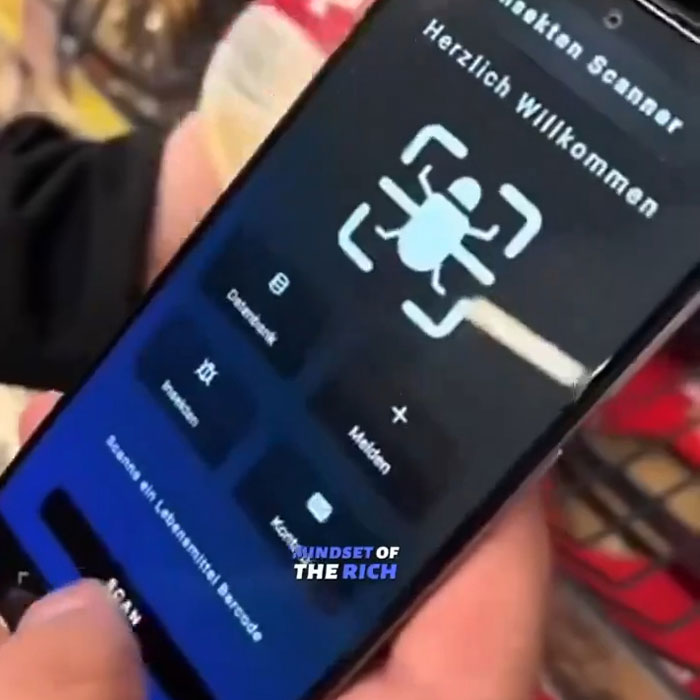
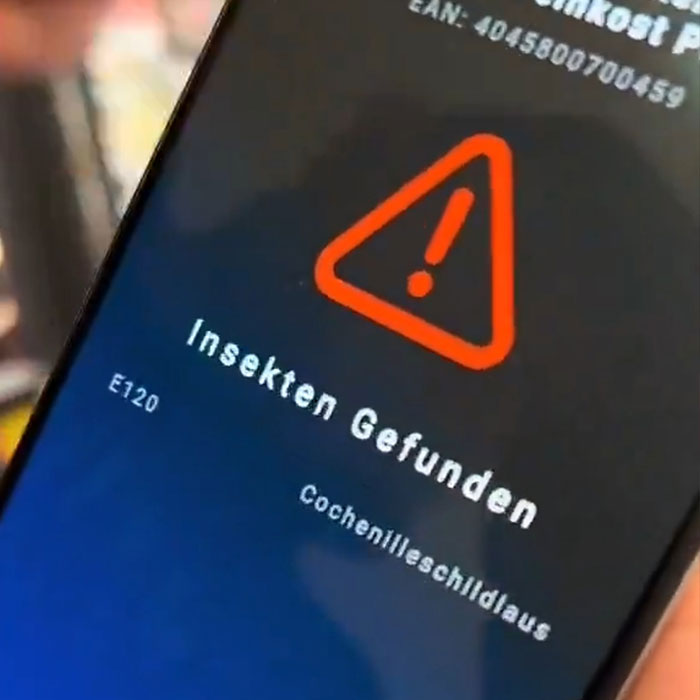
Others believed that the bug dye wasn’t all that bad. “I’ll take insects over the random chemicals in American food,” one user replied. “Still better than synthetic Red 40 that is linked to ADHD symptoms,” said another.
Plus, people pointed out that many other cultures eat insects regularly. For instance, Adam J Bustamante gave his “hot take” that Colombian giant ants, which are considered a delicacy and aphrodisiac in the South American country, are “actually really good.”
Some were less concerned and pointed out that carmine dye has been used for thousands of years
The German people have come up with an app to tell them if the food they are buying has bug parts in it. 🤢 Well probably need this same app in America soon. pic.twitter.com/Iu0mdfRgP4
— ⚔️Love Me When I’m Gone⚔️ (@TSH2_) April 29, 2024
WEF conspiracy or not, the app does serve a useful purpose: consumer information. Many people have allergies to insect-sourced ingredients like carmine, and others may wish to avoid them due to religious or personal dietary restrictions, such as vegans and Kosher eaters.
As people increasingly want to know what’s in their highly processed food, similar apps have popped up. Insects in Food, developed in May 2023, functions similarly, and FoodCheckr, a Slovenian app developed in January 2024, provides insights into various food additives, including those sourced from insects. Both already have hundreds of downloads.
People are divided over the use of insect ingredients in food
